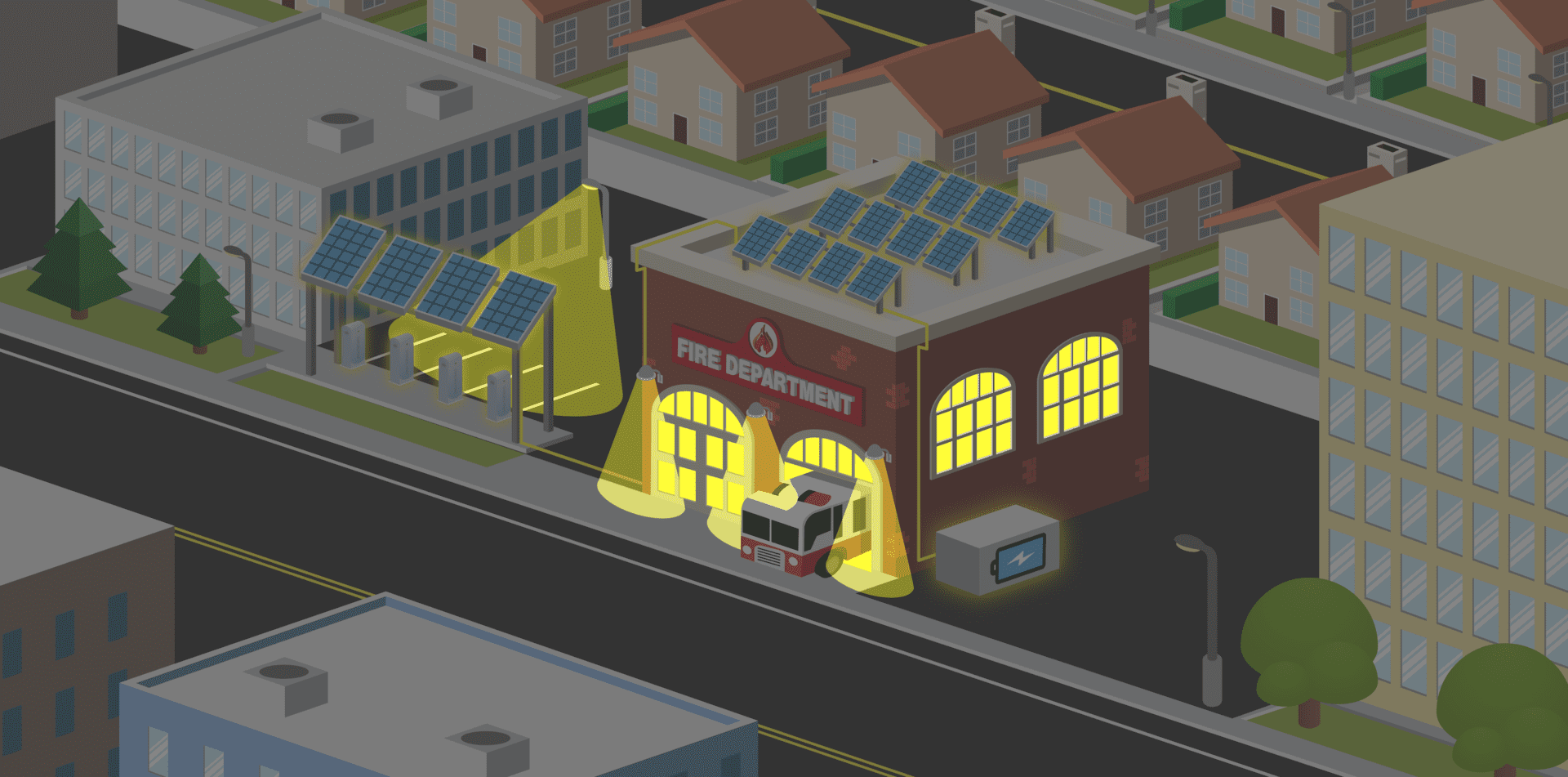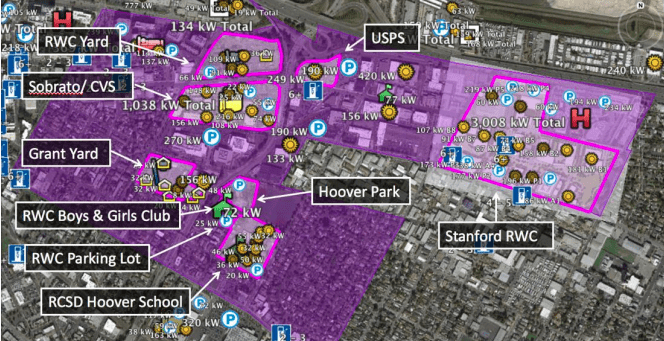Webinar: Scalable Commercial Solar + Storage for California CCAs – 11 March 2026
This one-hour Clean Coalition hosted webinar takes place 11 March 2026 at 10:00 AM PST
Read More

PAEC will include at least one Solar Emergency Microgrid that the Clean Coalition is designing to provide renewables-driven power backup to critical facilities.
A Solar Emergency Microgrid has three basic components:
Solar Emergency Microgrids are designed to provide indefinite backup power for critical loads, like police and fire stations, emergency operations centers and shelters, and critical communications and water infrastructure.
This design and deployment plan is for a Solar Emergency Microgrid within the core PAEC region. The Solar Emergency Microgrid will provide renewables-driven power backup for critical facilities, such as police and fire stations, emergency operations centers, emergency shelters, and other facilities prioritized by the jurisdiction — providing environmental, economic, and resilience benefits to the area.

The latest in clean local energy
Learn about our innovative projects and initiatives on our blog, and see what others are reporting about our important work.
This one-hour Clean Coalition hosted webinar takes place 11 March 2026 at 10:00 AM PST
Read MoreBusiness Wire reports on Intersolar & Energy Storage North America's program, including Clean Coalition's "Energy Tetris" Power Lunch.
Read articleThe Clean Coalition was a partner organization for this webinar, which took place on 28 January 2026 at 10am.
Read More